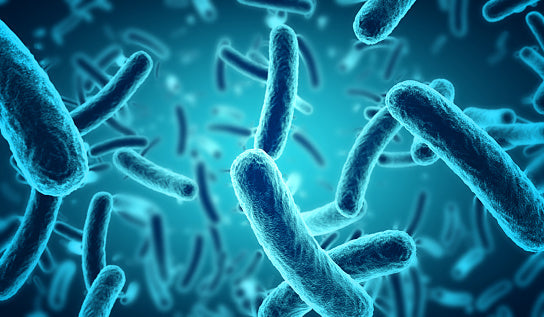
You may have never heard of Archaea.
Archaea are single-celled organisms that live in harsh environments, such as hot springs and deep-sea vents.
If you're concerned about your health, Archaea will interest you.
They are essential to health because Archaea live in the human body.
They're found in the human gut.
This blog post will explore everything you need to know about Archaea, including their benefits to our health.
So let's get started!
What are Archaea?
Archaea are microscopic living organisms that have been around since the beginning. Yet, they remain largely unknown and mysterious beings.
These amazing creatures are very flexible and can live in places where other living things can't.
Archaea are microscopic organisms that are hard to see with the naked eye. They live inside and outside the Earth's atmosphere, where their temperatures range from just above freezing to over 100 degrees Celsius.
While scientists are working hard to figure out what makes these organisms so interesting, they have learned much already about the benefits or Archaea.
Archaea are very important organisms as I will explain.
How do Archaea differ from bacteria and other microorganisms?
Archaea, like bacteria, are single-celled microorganisms that help form the foundation of our planet's biodiversity.
They differ from other microorganisms, though, in some remarkable ways. For example, unlike bacteria and many other prokaryotes, the cell walls of Archaea contain branched alkanes instead of peptidoglycan.
This makes Archaea more resistant to extreme environments and conditions like not having enough food or being in very hot or cold temperatures.
Archaea also have unique cell membrane structures with lipids that aren't found in any other living thing on Earth.
It is becoming apparent through new research that Archaea are very important to life on Earth and we can learn alot from where and how they live.
What are Archaea's habitats, and how do they live there?
Archaea can be found in extreme environments, such as near hydrothermal vents on the ocean floor or high in the polar ice.
They are even found inside of living things.
Archaea can also live in salty habitats like salt marshes and hypersaline lakes.
They have shown that they can adapt well to changes in their environment as long as there is a source of energy available.
They function by breaking down organic compounds, creating a cycle of nitrogen that is beneficial for all forms of life.
This important function of Archaea has made them invaluable members of any habitat they are in.
Studying Archaea has allowed us to gain insight into how life on Earth first evolved from them.
What role does archaea play in the environment and the food chain?
Archaea are very versatile organisms that are important to the environment because they are the basis of many food chains.
Doing things like cycling nitrogen helps keep the ecosystem balanced and makes it possible for other organisms to live and grow.
Archaea are also a big part of natural ecosystems. They break down organic matter into methane and other energy sources.
This is especially vital in areas where oxygen is scarce or unavailable.
Lastly, Archaea are used by humans to create fermented foods such as wine and beer and can even aid in wastewater treatment.
How do we study Archaea, and what have we learned so far about them through research?
To properly study these microscopic life forms, researchers have focused on a few key areas: DNA sequencing, gene analysis, and metagenomics sampling.
Through dedicated study and research, we have obtained valuable insight into the evolution of Archaea over time by investigating ancient bacterial colonies and new species that may be inhabiting terrestrial or aquatic environments.
By utilizing advanced technology and complex laboratory techniques, we can continue exploring this incredible microorganism's intricacies and benefits.
We are only beginning to understand how powerful Archaea are in our ecosystem and their potential applications.
How do Archaea affect the human body?
Archaea are on average 9 times smaller than bacteria but we have discovered in our laboratory that they are The Boss and Protector of the Bacteria and all other forms of life!
These Archaea are kinda like the Generals and Captains instructing the millions of little defense squads running through your gut and body that assist your immune system to handle the waste, pathogens, toxins and heavy metals that damage it.
The past 8 years of research has helped us figure out that these Archaea are essential to human health and all life on Earth!
Archaea protect probiotics from harsh chemicals and metals that easily kill them, such as antibiotic use. They even direct the probiotics to make them work better.
And Archaea, working with probiotics, help to detoxify the gut and the rest of the body from harsh chemicals such as pesticides and heavy metals like lead, mercury, and even harmful pathogens.
While the research is still ongoing, Archaea are proving to be vital to human health.
Conclusion
Now that you know more about Archaea, don't you think it's time to take charge of your gut health? After all, these hardy microbes play such an essential role in our overall well-being.
If you want to fortify your system against digestive discomfort and keep Archaea populations thriving, give YourBiotics a try. Our unique product contains live cultures of multiple different strains.
This powerful combination can help balance intestinal flora, ease bowel transit times, reduce bloating and gas production, and promote regularity—giving you the boost you need to power through your day confidently. Why wait?


